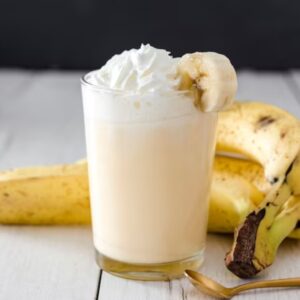
Understanding GERD: Gastroesophageal Reflux Disease. How Your Diet and Gut Health Impact Acid Reflux
Introduction
Hey everyone! Today, we’re diving into the world of Gastroesophageal Reflux Disease, commonly known as GERD. It’s important to understand this digestive condition as it affects a large number of individuals worldwide. GERD occurs when stomach acid flows back into the esophagus, causing uncomfortable symptoms like heartburn and pain. However, did you know that what you eat and the health of your gut can play a significant role in the development and management of GERD? In this comprehensive guide, we’ll explore GERD in depth, including its symptoms, causes, and the impact of diet and gut health on acid reflux.
What is GERD?
GERD, or Gastroesophageal Reflux Disease, is a chronic condition characterized by the regurgitation of stomach acid into the esophagus. The lower esophageal sphincter (LES), a muscle located between the esophagus and the stomach, normally acts as a barrier to prevent this backflow. However, in individuals with GERD, the LES becomes weakened or relaxes abnormally, allowing stomach acid to escape into the esophagus. This repetitive exposure to acid can cause inflammation, irritation, and damage to the lining of the esophagus over time.
Symptoms of GERD
GERD presents a variety of symptoms that can range in severity. While not everyone experiences all of these symptoms, the most common ones include:
- Heartburn: A burning sensation in the chest or throat, often accompanied by a sour or acidic taste in the mouth.
- Regurgitation: The sensation of acid or food coming back up into the throat or mouth.
- Chest pain: Discomfort or pain in the chest, sometimes mistaken for a heart attack.
- Difficulty swallowing: A feeling of food getting stuck or experiencing pain while swallowing.
- Chronic cough: A persistent cough, often worse at night, due to irritation in the throat caused by acid reflux.
- Hoarseness or sore throat: Voice changes or a persistent sore throat may be indicative of GERD.
- Laryngitis: Inflammation of the vocal cords resulting in a raspy voice or loss of voice.
It’s important to note that these symptoms can vary from person to person, and some individuals may experience additional symptoms not listed here. If you suspect you may have GERD based on these symptoms, it’s recommended to consult with a healthcare professional for a proper diagnosis and guidance.
The Impact of Diet
Now that we have a better understanding of GERD, let’s explore how diet can influence this condition. Certain types of food can trigger or worsen GERD symptoms by either relaxing the lower esophageal sphincter or increasing stomach acid production. It’s crucial to be mindful of the following trigger foods:
- Fatty and fried foods
- Chocolate
- Caffeine
- Spicy foods
- Citrus fruits
- Tomatoes
- Carbonated drinks
By limiting the consumption of these trigger foods, you can significantly manage GERD symptoms. However, it’s important to note that triggers can vary among individuals. Paying attention to your body’s responses will help you identify specific foods that worsen your symptoms.
Healthy Recipe 1: GERD-Friendly Salad
Ingredients:
- Mixed greens
- Grilled chicken or tofu
- Sliced cucumbers
- Diced bell peppers
- Olive oil and lemon juice dressing
Instructions:
- Toss the mixed greens, grilled chicken or tofu, sliced cucumbers, and diced bell peppers in a bowl.
- Drizzle olive oil and lemon juice dressing over the salad.
- Enjoy this delicious and GERD-friendly salad!
Healthy Recipe 2: Baked Salmon with Steamed Vegetables
Ingredients:
- Fresh salmon fillet
- Assorted vegetables (broccoli, carrots, cauliflower)
- Lemon slices
- Olive oil
- Salt and pepper
Instructions:
- Preheat the oven to 375°F (190°C).
- Place the salmon fillet on a baking sheet lined with parchment paper.
- Arrange the assorted vegetables around the salmon.
- Drizzle olive oil over the salmon and vegetables, and season with salt and pepper.
- Place lemon slices on top of the salmon.
- Bake in the preheated oven for 15-20 minutes or until the salmon is cooked through and the vegetables are tender.
- Serve this nutritious meal to support your GERD management.
Healthy Recipe 3: Banana-Oatmeal Smoothie
Ingredients:
- 1 ripe banana
- 1/2 cup rolled oats
- 1 cup almond milk (or any non-dairy milk)
- 1 tablespoon honey (optional)
- 1/2 teaspoon vanilla extract
Instructions:
- In a blender, combine the ripe banana, rolled oats, almond milk, honey (if desired), and vanilla extract.
- Blend until smooth and creamy.
- Pour the smoothie into a glass and enjoy this gut-friendly beverage!
Overeating
In addition to dietary considerations, portion control and weight management also play a vital role in managing GERD. Consuming large meals can put excessive pressure on your stomach, increasing the likelihood of acid reflux. Additionally, carrying excess weight can compress your stomach and weaken the lower esophageal sphincter, exacerbating GERD symptoms. To reduce the risk of GERD, try adopting the following habits:
- Eat smaller, balanced meals throughout the day.
- Practice mindful eating, paying attention to your body’s hunger and fullness cues.
- Maintain a healthy weight through regular exercise and a balanced diet.
Probiotics and Prebiotics
Maintaining a healthy gut microbiome is crucial for managing GERD. Probiotics, which are beneficial bacteria, and prebiotics, which are the food for these bacteria, play a significant role in supporting gut health. You can incorporate probiotics into your diet by consuming foods like yogurt or taking probiotic supplements. Prebiotics, on the other hand, are found in foods such as bananas, onions, and garlic. Including these gut-friendly elements in your daily routine can promote a healthy digestive system.
The Role of Fiber
Fiber is an essential component for maintaining gut health and managing GERD. It aids in smooth digestion, prevents constipation, and helps alleviate symptoms associated with acid reflux. To ensure an adequate fiber intake, incorporate the following fiber-rich foods into your diet:
- Whole grains
- Fruits
- Vegetables
- Legumes
By including these fiber-rich foods in your meals, you can support your gut health and keep GERD symptoms in check.
Gut Health and GERD
Your gut and brain have a fascinating connection known as the gut-brain axis. When your gut is not in optimal condition, this communication can be disrupted, potentially triggering GERD symptoms. Imbalances in gut bacteria and inflammation in the intestines can contribute to the development and exacerbation of GERD. Therefore, maintaining a healthy gut is crucial in managing this condition effectively.
Conclusion
To sum it all up, understanding and effectively managing GERD involves a comprehensive approach that encompasses diet, portion control, weight management, and gut health. By avoiding trigger foods, practicing portion control, maintaining a healthy weight, and incorporating probiotics, prebiotics, and fiber-rich foods into your diet, you can significantly alleviate GERD symptoms and promote overall digestive well-being. However, it’s important to remember that this article is not medical advice, and if you’re experiencing GERD symptoms or have concerns about your digestive health, it’s best to consult a healthcare professional for a proper diagnosis, personalized advice, and the most suitable course of treatment.
FAQ
Q: Can GERD be cured completely?
A: While GERD cannot be cured completely, it can be effectively managed through lifestyle changes and medical interventions. It’s essential to work with your healthcare provider to develop a comprehensive treatment plan that suits your specific needs.
Q: Are there any natural remedies for GERD?
A: Some individuals find relief from GERD symptoms by incorporating natural remedies into their routine, such as consuming ginger or chamomile tea, practicing stress-reducing techniques like meditation and yoga, and elevating the head of their bed while sleeping. However, it’s important to note that the effectiveness of these remedies can vary from person to person, and it’s advisable to consult with a healthcare professional before trying any natural remedies.
Q: Can exercise worsen GERD symptoms?
A: While exercise is generally beneficial for overall health, certain activities can trigger GERD symptoms, particularly if they involve bending forward or intense physical exertion. It’s recommended to engage in low-impact exercises like walking, cycling, or swimming and avoid intense workouts immediately after meals to minimize the risk of acid reflux.
We hope this comprehensive guide has provided you with a deeper understanding of GERD, its symptoms, and the impact of diet and gut health on acid reflux. If you have any further questions or would like to share your experiences, please feel free to comment below. Remember, while these tips can be helpful, it’s always best to consult a healthcare professional for personalized advice and support. Take care of yourself and prioritize your digestive health for a happier, healthier you!

